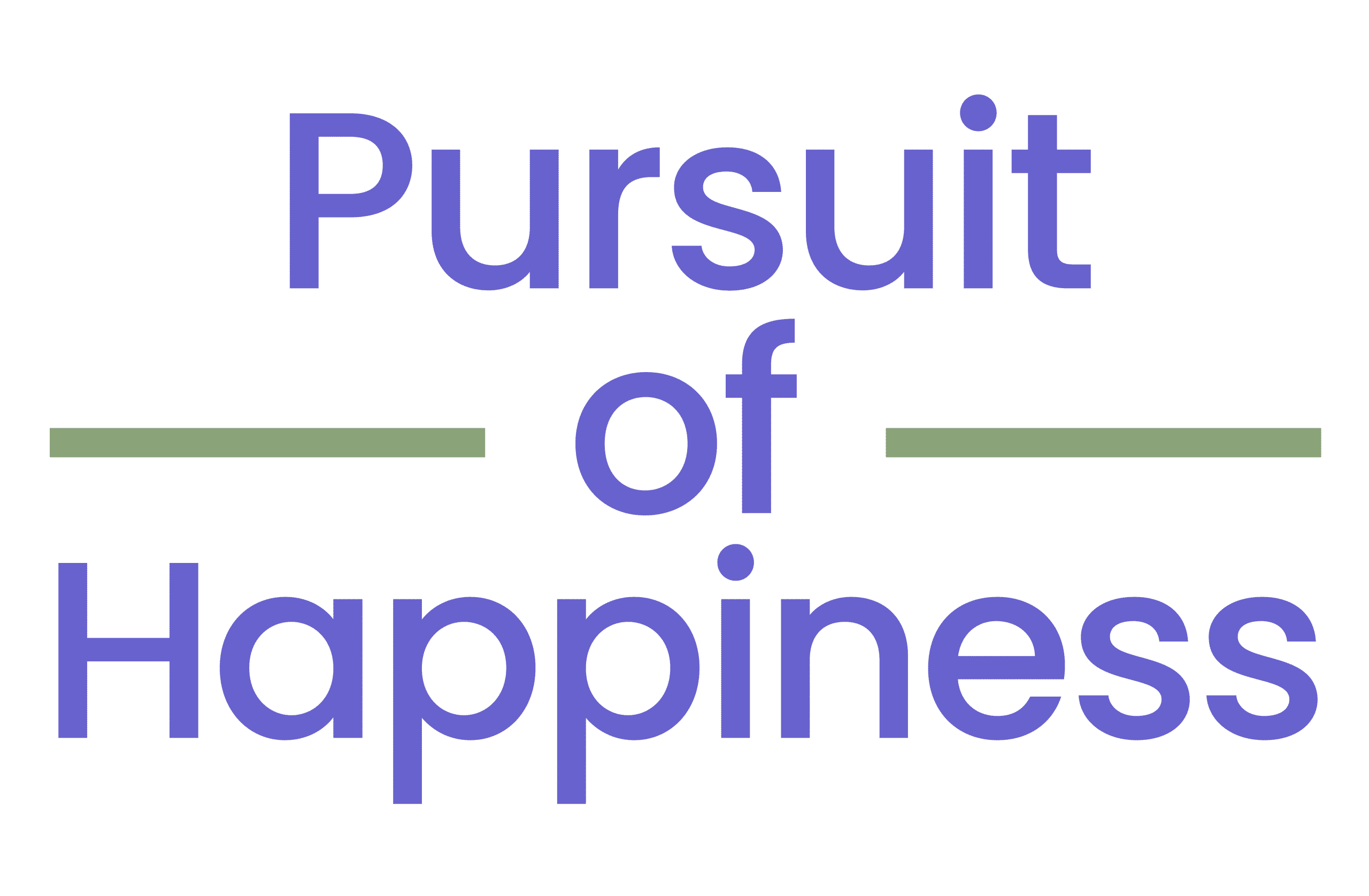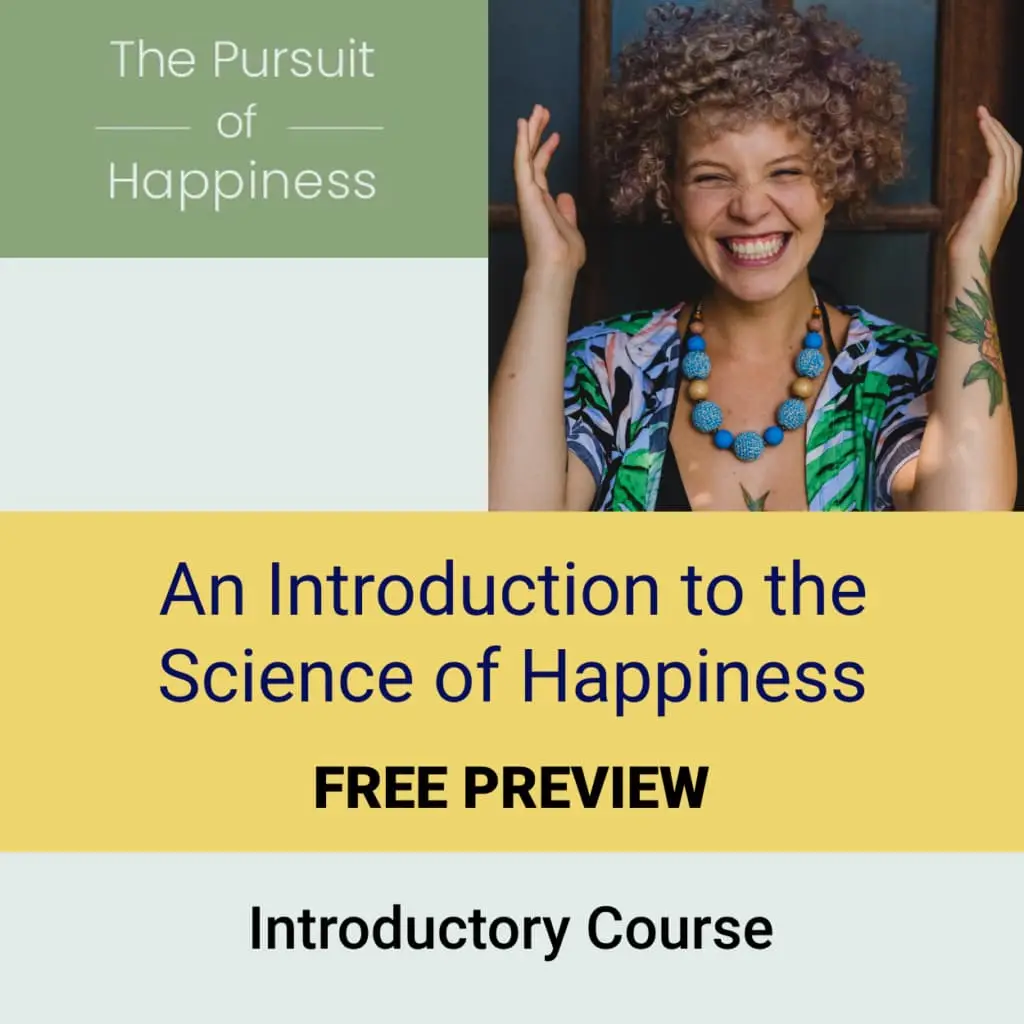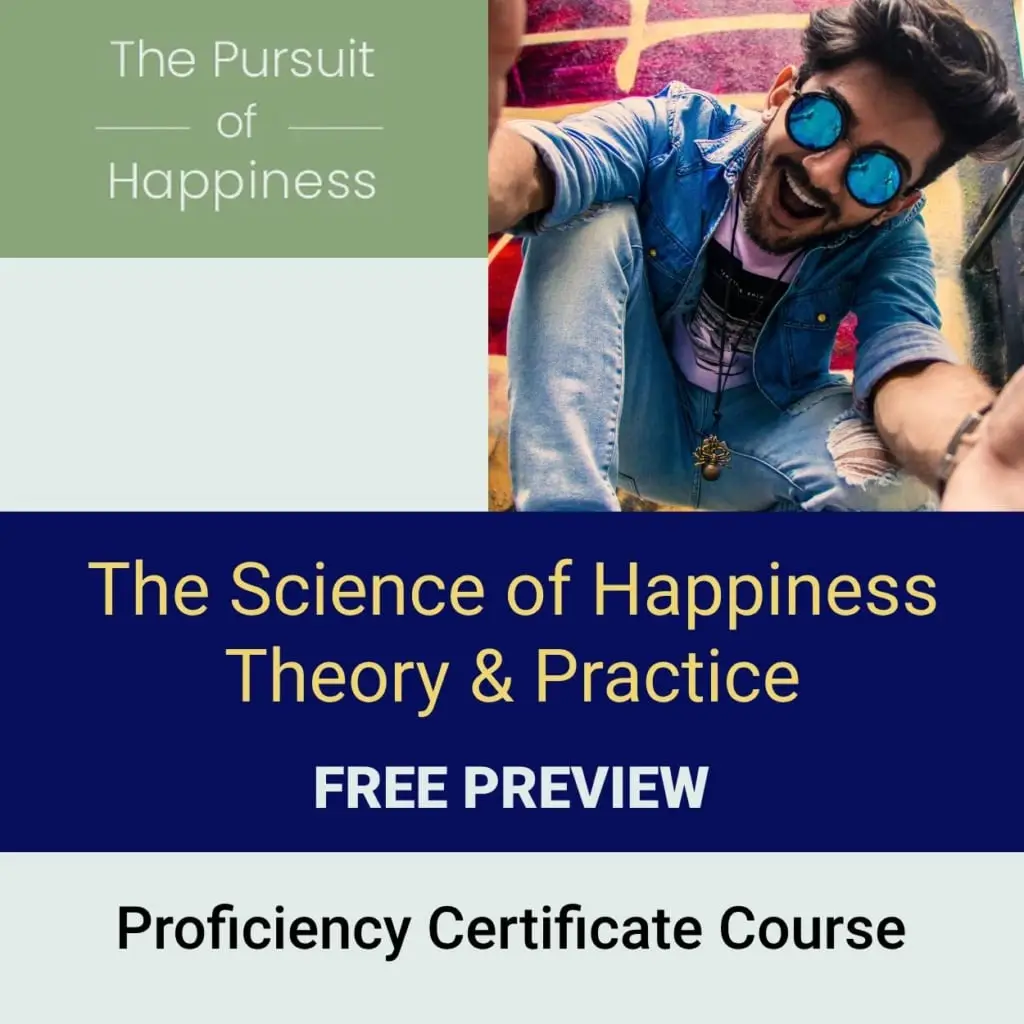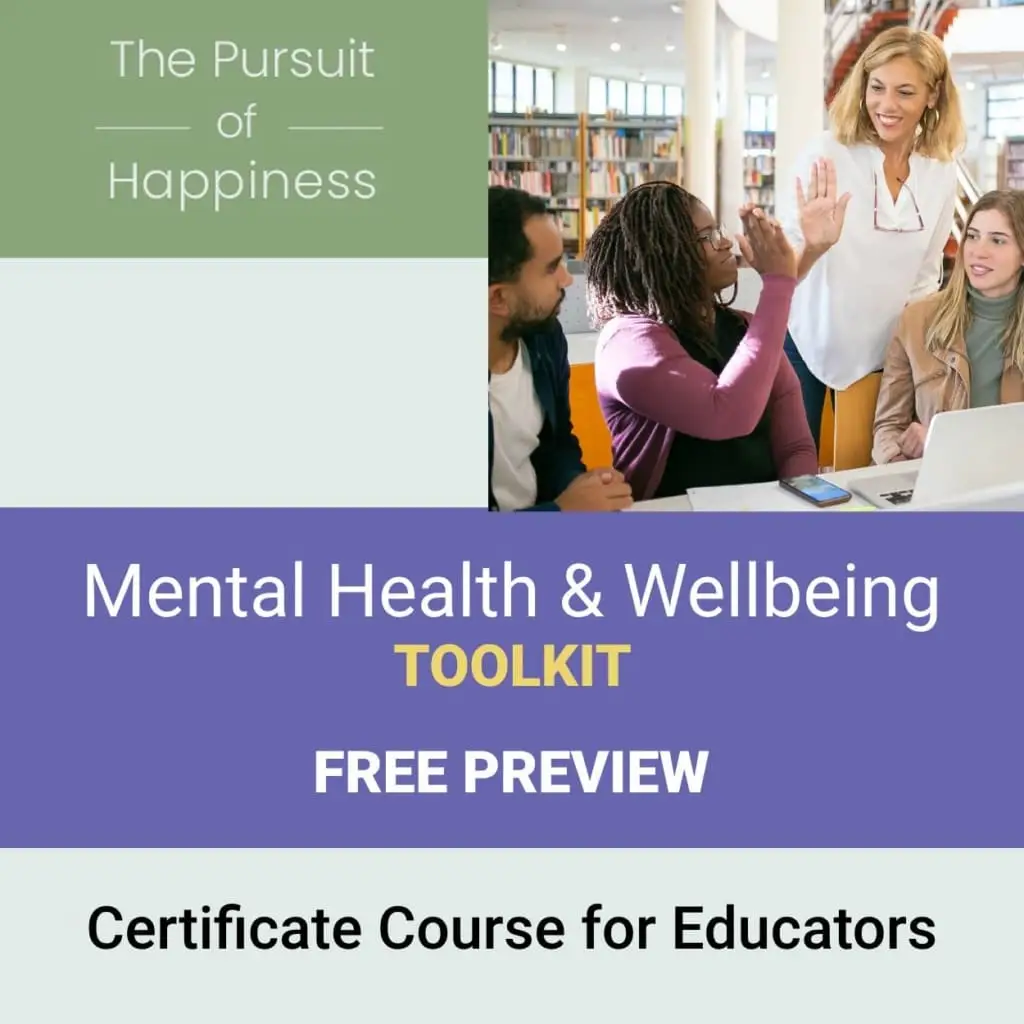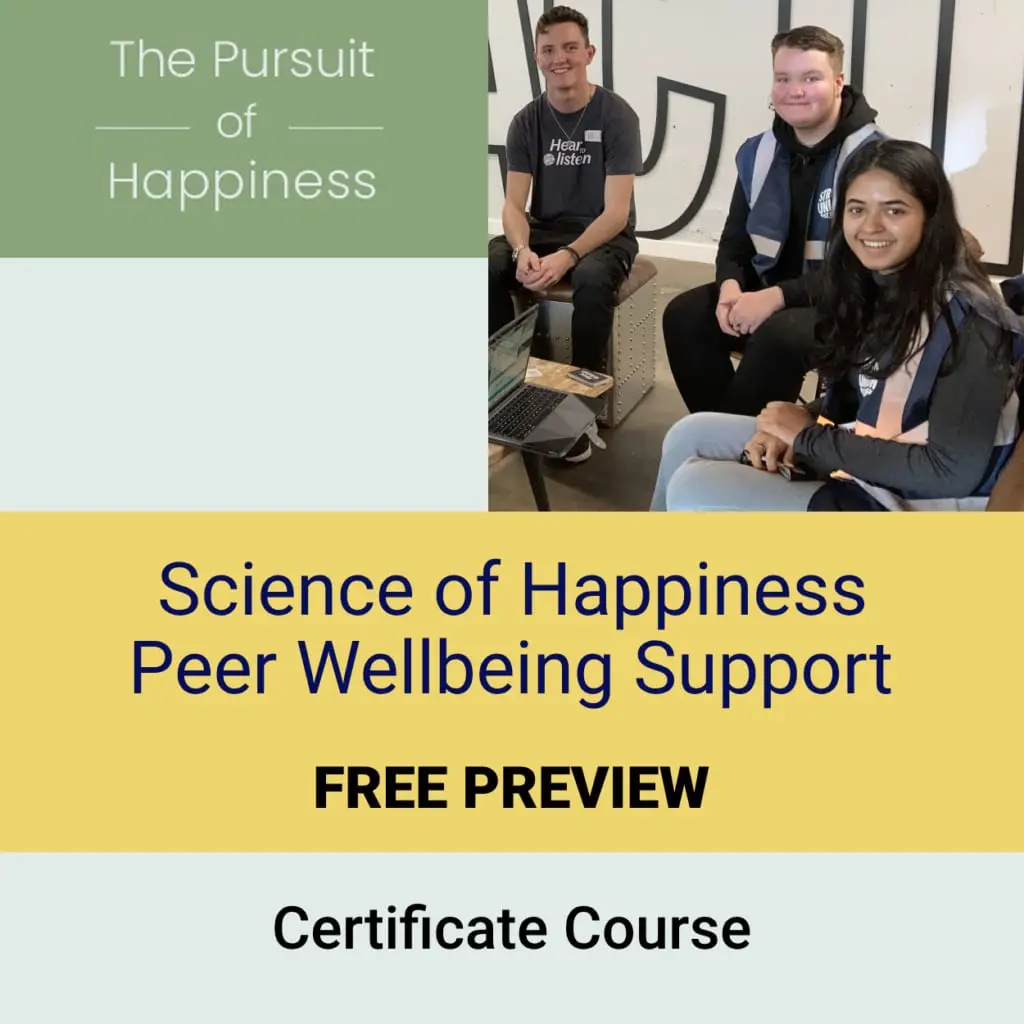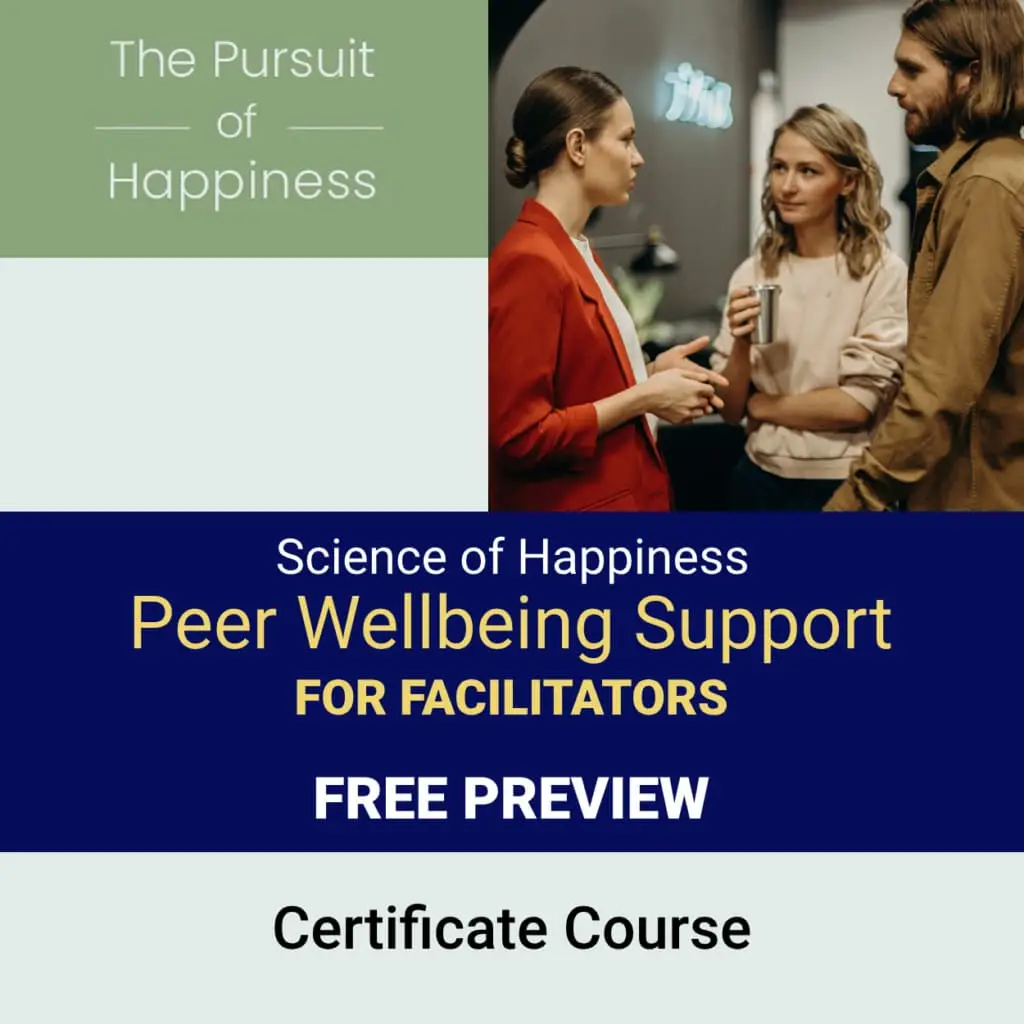Let’s begin with definitions (the boring stuff): Happiness is an especially “fuzzy” word. It is used to refer to a whole range of related emotions, such as joy, elation, satisfaction, peace of mind, etc. Two commonly used scientific terms for happiness are Psychological Well-being (PWB) and Subjective Well-being (SWB). In this FAQ we focus on happiness in terms of psychological well-being (a little less fuzzy).
How can we become happier?
Leading Positive Psychologists claim that happiness has three sources, ie that the “Happiness Pie” has three slices:
Slice 1: Our genetic makeup (ie our “inbuilt” sense of happiness, or grumpiness, that runs in the family). We can’t do much about that. Some scientists argue that this is the biggest slice, perhaps 50% or more, but it is scientifically very difficult to prove.
Slice 2: Our environment. If you live in a war zone for example, that may have a big impact on your mood. You may be able to change that. Or not.
Slice 3: Our actions, such as life skills or habits. We can definitely change this slice of the pie. Some of these skills can be practiced immediately (such as active-constructive listening), and may change your mood pretty immediately too. Some take a while (such as regular exercise) but have a profound, long term impact on your well-being. We now have evidence that, over the long term, exercise might be at least as effective as anti-depressants (if you are seriously depressed and need to find relief in a hurry you should of course call a specialist). The exciting thing about the “life skills” slice of the pie is that you can get off your chair and eat it right now. You can read about what the Science of Happiness tells us about the habits of happy people on this page. Or if you are a visual learner and tired of reading stuff, you can check out our free preview to our Introductory Course!
If the Science of Happiness actually works, how come so many people are depressed?
Some leading reasons:
- Ignorance. Nobody taught us about life skills. According to Aristotle, one of the pioneers of happiness, “Education of the mind without education of the heart is not an education at all.” Many of our schools have become FACTories. We have forgotten that education is mainly about teaching skills (not facts), and especially life skills. And we didn’t know about some of these life skills until very recently. The science of happiness is fairly new. You can read about how it began with Mihaly Csikszentmihalyi here.
- The Hype of Happiness. Partly due to an epidemic of depression, we have seen an explosion of interest in happiness. If something becomes a focus of interest, commercialization is not far behind. Happiness Inc. is a thriving business.
How do we distinguish the science from the hype? Perhaps the best way is to question the sources of evidence. If you are told that smiling at yourself in the mirror in the morning is the key to happiness, look for the source. Is it based on a piece written for “Bliss Magazine” with no mention of sources? Or is it based on reviews of randomized, controlled scientific studies? - The culture of immediate gratification. We want things now. Yesterday. So we drink a beer or take a tranquillizer. Or tap an emoji on a smartphone screen instead of calling. Happiness takes a little spade work. But the long terms benefits are enormous.
- Some things are out of our control. This is the second slice of the “happiness pie.” The world is going through a perfect storm of chaotic changes that humans are not used to dealing with. Covid 19, climate change, overcrowding..economic chaos..and so on. You may not be able to change that slice of the pie. But the third slice is right next to you. Can you see it? No? Perhaps your armchair is getting in the way.
The New Science of Happiness

Positive Psychology
Seligman’s bottom line is that happiness has three dimensions that can be cultivated:
- “The pleasant life” is realized if we learn to savor and appreciate such basic pleasures as companionship, the natural environment and our bodily needs.
- We can remain pleasantly stuck at this stage or we can go on to experience “the good life,” which is achieved by discovering our unique virtues and strengths and employing them creatively to enhance our lives.
- The final stage is “the meaningful life,” in which we find a deep sense of fulfillment by mobilizing our unique strengths for a purpose much greater than ourselves.
The genius of Seligman’s theory is that it reconciles two conflicting views of human happiness – the individualistic approach, which emphasizes that we should take care of ourselves and nurture our own strengths, and the altruistic approach, which tends to downplay individuality and emphasizes self-sacrifice. (M.E.P. Seligman, Authentic Happiness, 249.)
Facing the Problem With a Smile

- Nearly twenty percent of U.S. citizens experience some form of depression during their lifetime. Americans are taking so many antidepressants that, according to the New York Times, the water supplies of major U.S. cities are now contaminated with traces of these drugs.
- The problem is not limited to adults. The American Psychological Association reports that “as many as 9% of children will experience a major depressive episode by the time they are 14 years old, and 20% will experience a major depressive episode before graduating from high school.”
- Statistics show that children who have suffered from depression are more vulnerable to depression as adults.
New Science and Ancient Wisdom

Yet within the Science of Happiness some major areas of consensus are emerging. Many of the new studies are confirming what great philosophical and spiritual thinkers from Confucius to Aristotle taught us long ago. In spite of powerful genetic and environmental influences, a sizable chunk of our mental well-being depends on our actions and attitudes. Secondly, by cultivating certain strengths and virtues, we are not escaping from the causes of depression. On the contrary, this strategy seems to generate a resilience that protects us from it. So now, a new science, which in fascinating ways is confirming ancient insights from East and West, is opening the door to an unprecedented opportunity. We can now analyze the growing mountain of studies on “subjective well-being” or happiness, and separate the science from the hype. You may have noticed that there is a lot of hype about happiness. Next, we need to show how the results can be applied to the real world. Not least, we need to translate the scientific jargon into proper English. As the writers of computer manuals used to say, “easy is difficult.” Academics are very good at digging up profound truths and burying them again with equal success. Finally, we need to integrate this new-found wisdom with existing curricula, both in high schools and universities.
Teaching Happiness

Further Readings
To find out more about the secrets of happy people you can refer to the following.
